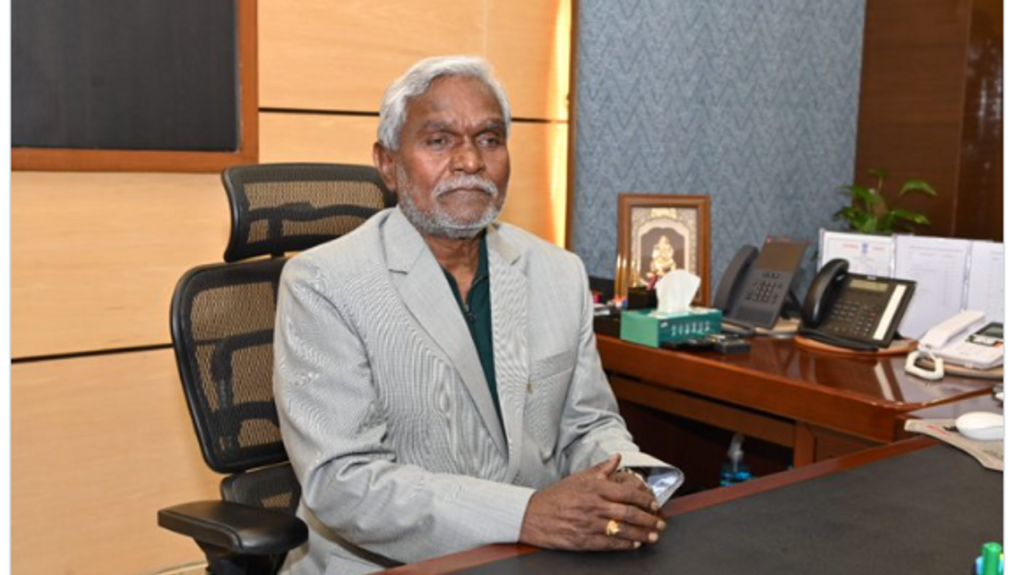
Introduction
Jharkhand, a state known for its rich cultural heritage and natural resources, has been at the center of political discourse in India for many years. With a complex history and a diverse population, the state has seen a series of political changes, each shaping its present and future. As of 2024, a new leader has emerged to steer Jharkhand towards growth and development: Champai Soren. His journey from grassroots activism to becoming the Chief Minister of Jharkhand reflects his deep commitment to the welfare of the state’s tribal communities and his vision for an inclusive and prosperous Jharkhand.
This article delves into Champai Soren’s political journey, his policies, and the impact he is expected to have on the state’s future. As we explore his leadership, we will also look at the challenges he faces and how his administration plans to address them.
Champai Soren: A Brief Background
Champai Soren hails from a humble background, deeply rooted in the tribal culture of Jharkhand. Born and raised in the East Singhbhum district, Soren belongs to the Santhal tribe, one of the largest indigenous communities in the state. His early life was marked by the struggles and challenges faced by many in the tribal regions of Jharkhand, where access to education, healthcare, and basic amenities were limited.
Soren’s foray into politics was driven by his desire to uplift the marginalized sections of society, particularly the tribal communities. He started his political career as a member of the Jharkhand Mukti Morcha (JMM), a party that has long championed the cause of tribal rights and the creation of a separate state of Jharkhand. Over the years, he gained recognition for his dedication and ability to connect with the grassroots, which eventually led to his rise within the party ranks.
Political Journey and Leadership Style
Champai Soren’s political journey is a testament to his perseverance and commitment to social justice. He began his political career as a grassroots activist, focusing on issues such as land rights, forest conservation, and the welfare of tribal communities. His activism brought him into the limelight, and he quickly rose through the ranks of the JMM, a party founded by his mentor and former Jharkhand Chief Minister Shibu Soren.
Over the years, Champai Soren has held various positions within the party and the state government. He served as the Minister for Transport in the Jharkhand government, where he was instrumental in improving rural connectivity and expanding public transportation networks. His leadership style is characterized by a hands-on approach, with a focus on addressing the needs of the common people. Soren is known for his accessibility and willingness to engage with his constituents, a trait that has endeared him to many in the state.
In 2024, after years of serving as a key figure within the JMM and gaining widespread support among the tribal communities, Champai Soren was elected as the Chief Minister of Jharkhand. His election marked a significant moment in the state’s political history, as he became the first tribal leader from the Santhal community to hold the office of Chief Minister.
Key Policies and Vision for Jharkhand
As Chief Minister, Champai Soren has outlined a clear vision for Jharkhand’s development, with a strong emphasis on social justice, economic growth, and environmental sustainability. His administration’s policies are geared towards addressing the longstanding issues faced by the state’s marginalized communities while also promoting overall development.
- Empowerment of Tribal Communities: Champai Soren has made the empowerment of tribal communities a central focus of his administration. His government has launched several initiatives aimed at improving the socio-economic conditions of the state’s tribal population. These include programs for land rights, access to education, and healthcare. Soren has also emphasized the need to preserve and promote tribal culture and traditions, recognizing them as integral to Jharkhand’s identity.
- Agricultural Development and Rural Welfare: Agriculture is the backbone of Jharkhand’s economy, with a significant portion of the population dependent on farming for their livelihood. Soren’s government has introduced policies to support farmers, including subsidies for seeds, fertilizers, and irrigation. Additionally, efforts are being made to improve rural infrastructure, such as roads and electricity, to enhance the quality of life in the state’s villages.
- Industrial Growth and Employment Generation: While Jharkhand is rich in mineral resources, the state has struggled to translate this wealth into widespread prosperity. Champai Soren’s administration is working to attract investment in industries such as mining, steel, and manufacturing while ensuring that these activities are conducted in an environmentally sustainable manner. A key aspect of this strategy is the creation of jobs for the state’s youth, with a focus on skill development and vocational training.
- Environmental Conservation: Jharkhand’s forests are not only vital for its biodiversity but also for the livelihood of its tribal communities. Soren has taken a strong stance on environmental conservation, advocating for the protection of the state’s natural resources. His government is working on initiatives to combat deforestation, promote afforestation, and ensure the sustainable management of forest resources.
- Education and Healthcare: Education and healthcare are two critical areas where Jharkhand has historically lagged. Champai Soren’s government is committed to improving access to quality education, particularly in rural and tribal areas. This includes the establishment of new schools, upgrading existing facilities, and providing scholarships for deserving students. In healthcare, the focus is on expanding the reach of primary health centers, improving maternal and child health, and tackling malnutrition.
Challenges and Road Ahead
Despite his clear vision and strong policies, Champai Soren faces several challenges as Chief Minister of Jharkhand. The state continues to grapple with issues such as poverty, unemployment, and inadequate infrastructure. Additionally, the state’s dependence on mining has raised concerns about environmental degradation and displacement of local communities.
One of the major challenges for Soren’s administration is balancing economic growth with social justice and environmental sustainability. While attracting investment and promoting industrialization are crucial for Jharkhand’s development, it is equally important to ensure that these activities do not come at the cost of the state’s natural resources or the rights of its indigenous people.
Another challenge is the state’s political landscape, which has historically been marked by instability and frequent changes in government. Champai Soren will need to navigate these dynamics carefully, building alliances and maintaining support within his party and among the broader electorate.
Champai Soren’s rise to the position of Chief Minister marks a new chapter in Jharkhand’s political history. As a leader who has spent years working for the welfare of the state’s tribal communities, Soren brings a unique perspective to the challenges and opportunities facing Jharkhand. His administration’s focus on social justice, economic development, and environmental sustainability reflects his commitment to creating a more inclusive and prosperous Jharkhand.
As he leads the state into the future, Champai Soren will need to navigate a complex array of challenges while staying true to the values and principles that have guided his political career. With the right strategies and a continued focus on the welfare of all Jharkhandis, Soren has the potential to leave a lasting impact on the state, ushering in a new era of progress and development for Jharkhand.





